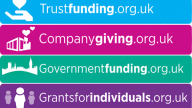The fundamentals of good charity writing
Without applying the very basics of good writing, your charity communications won’t shine.
You can have the best impact statistics. Brilliant case studies. A fantastic structure for your charity publication or website.
But without applying the very basics of good writing, your charity communications won’t shine. Poor writing turns readers off, and weakens even the best content’s impact. Worse still, you might not be understood – and therefore ignored.
Use these five simple reminders to keep your writing on track.
1. Jargon free
You might talk about HJDs and JSPs and facilitating empowerment of your service users with your colleagues. But that language shouldn’t make it anywhere near your external publications.
We all tend to write in a charity bubble, where we assume our target audiences use the same terms and language as we do. They don’t.
Ask yourself, would your gran, or neighbour or bus driver get what you’re talking about – immediately?
There’s the obvious jargon like: “We facilitate improvements in health through the process of recruiting level three healthcare professionals and the construction of high quality healthcare environments.”
But look out for other charity sector speak such as: supporters, stakeholders, direct mail, statutory funding, best practice, public benefit, outcomes, impact, engagement, service users. None of these would be immediately understood by most of your readers.
Explain, or better get rid of, jargon and acronyms and use the simplest language, appropriate to your audience, if you want to create clear publications or websites that make readers take notice.
2. Tight sentences
The best writing is often made up of short sentences. Every word should add meaning. Every phrase in its shortest, simplest form. That way, your writing will be easy to digest.
After writing your piece, go through it again looking for opportunities to tighten, cut and simplify.
For example, “We spend more than £100,000 a year on running projects” is better than “Our gross expenditure on charitable activities is in excess of £100,000 per annum”.
Look out for phrases that add no meaning, such as “it was totally unique” (something is either unique or not) and “our office is located at” (no need for located). Never use a complicated word or phrase when there’s a simpler alternative (“use” instead of “utilise”, “enough” instead of “sufficient”, “because” instead of “due to the fact that”). Beware of useless phrases like “at the end of the day” and “at this moment in time”.
There are also very few instances where removing the word “that” would damage clarity in your sentences. Try a search-and-remove in your next big article, and you’ll see what I mean.
3. Active, not passive
Statements have more impact when you write them in the active voice.
“The Teenagers Trust improved the youth centre”, is active.
“The youth centre was improved by the Teenagers Trust”, is passive.
Remember: the cat sat on the mat (not: the mat was sat on by the cat).
One or two passive sentences are OK in a longer piece, but if you fill your article with them it will read like an essay. Your writing will always have a bigger impact if you’re not afraid to be direct.
4. Cut adjectives
Lots of adjectives weaken the impact of your writing. They force readers to wade through too flowery words and make your prose overblown:
“Leading doctors have issued a dire warning that the nation’s massive obesity crisis will have very serious consequences for essential medical services.”
Instead try the more impactful: “Doctors have warned that obesity will have serious consequences for medical services.”
Mark Twain rightly said: “When you catch an adjective, kill it. No, I don’t mean utterly, but kill most of them – then the rest will be valuable.”
5. Prefer verbs over nouns
“We aim to increase engagement with young people and foster crime reduction.”
Overuse of nouns can make your writing feel formal and crowded. Flipping your sentence to make them into verbs can give your writing more pace, while also making it clear.
“We aim to engage young people and reduce crime.”


